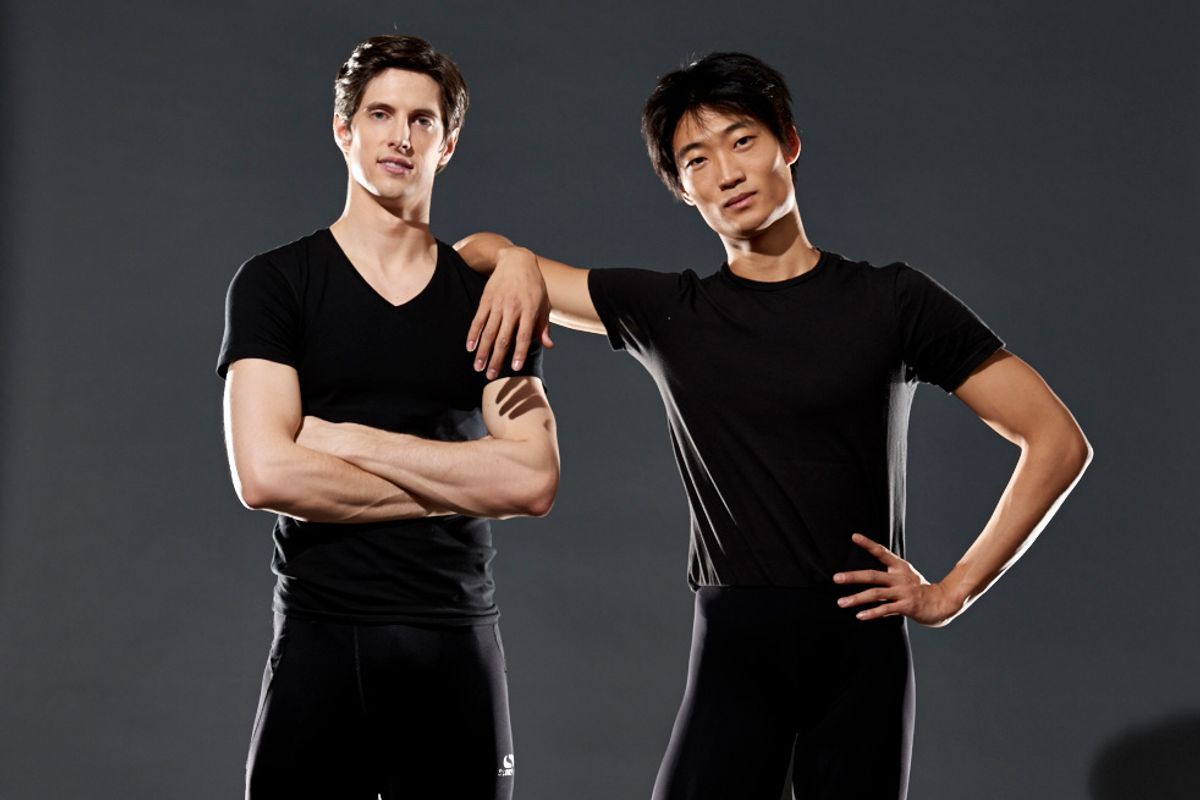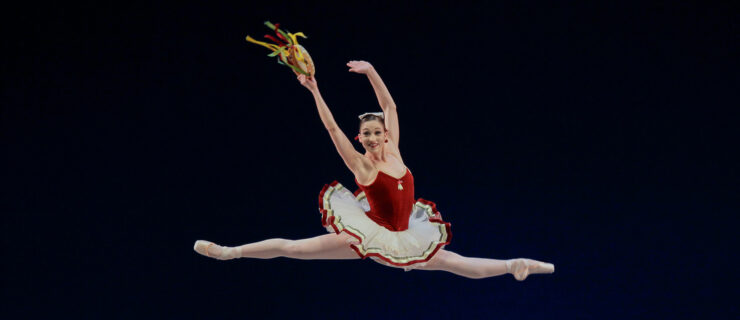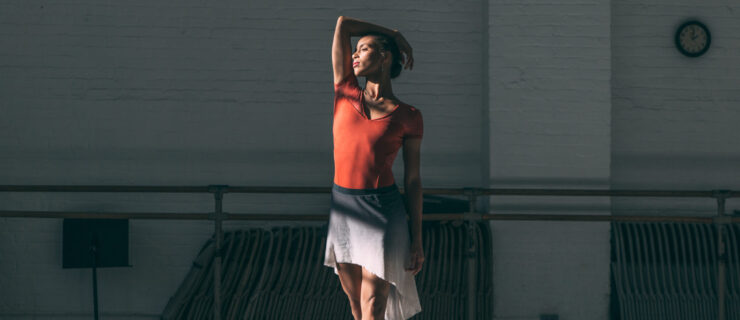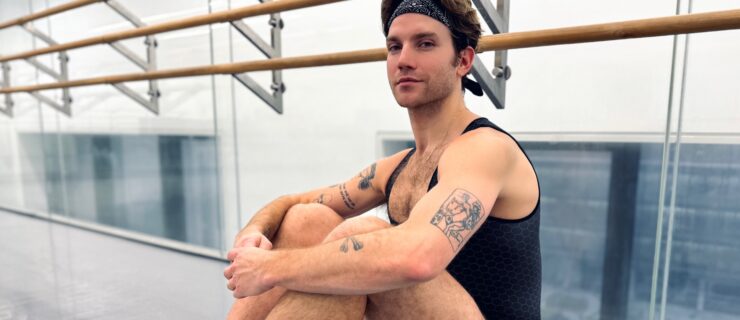Breaking Borders: How Non-Russian Dancers Kimin Kim and Xander Parish Found an Artistic Home at the Mariinsky
This story originally appeared in the December 2015/January 2016 issue of
Pointe.
Russia is often perceived as a closed book from abroad, and ballet is no exception. Though David Hallberg joined the Bolshoi Ballet in 2011, the country’s top companies have been slow to open their ranks to non-Russians. Under acting director Yuri Fateyev, however, the venerable Mariinsky Ballet has welcomed a handful of dancers trained abroad. South Korea’s Kimin Kim and Great Britain’s Xander Parish initially struggled to fit in with the culture, but both have found their niche in St. Petersburg, and are thriving today among Russian colleagues.
 Nathan Sayers for Pointe
Nathan Sayers for Pointe
Kimin Kim
Growing up in South Korea, Kimin Kim always thought of himself as a Russian dancer. For the prodigy who honed his astounding technique and poise with Vaganova-trained teachers, being a principal with the Mariinsky Ballet was “the ultimate dream,” he says. Earlier this year, it came true: At just 22, after three years in St. Petersburg, he was promoted to the top rank, the first foreigner to attain principal.
Kim’s journey started at age 10, when his mother, a composer, decided she “didn’t want him to be an ordinary person,” as he puts it, and suggested he try ballet. Former Mariinsky soloists Margarita Kullik and Vladimir Kim (no relation) nurtured him at the Korea National University of Arts. By the age of 18, his precocious technique had earned him accolades at international competitions from Moscow to Varna, and his teachers told Mariinsky director Yuri Fateyev about their protégé.
“I had to adapt to the culture:
Russian people are more critical,
more emotional.” —Kimin Kim
Kim was invited to a private audition in 2011, and since he hadn’t graduated from his Korean school yet, Fateyev created a six-month trainee contract for him. He spoke no Russian, so his teachers moved back to St. Petersburg to live with him; Vladimir Kim remains his coach there. “It was very hard at first, because I couldn’t do anything on my own,” the dancer remembers. “I also had to adapt to the culture: Russian people are more critical, more emotional.”
His first role with the company was Ali in Le Corsaire, and word of his impeccable turns, soaring jumps and elegant demeanor spread fast. In 2012, he was promoted straight to first soloist, and has worked long hours to add roles, including Solor, Basilio and Albrecht, to his repertoire, as well as ballets by Alexei Ratmansky and Wayne McGregor.
Earlier this year, Fateyev decided Kim was ready for principal status, though in a time-honored Mariinsky tradition, no one told him; instead, while in the U.S. for Youth America Grand Prix’s Stars of Today Meet the Stars of Tomorrow gala, he got a text from Vladimir Kim urging him to look at the Mariinsky’s website. “I saw my face at the top of the roster, and I knew,” Kim says.
Fateyev also suggested him to American Ballet Theatre for a guest spot in La Bayadère last spring. While Kim’s international career is taking off, the young principal says Russia is his home now. “Ballets like Swan Lake and Don Quixote were born here. Russian people feel these ballets, and I want to improve my characters, to understand the culture.” And now that he has reached his childhood goal, Kim jokes that he needs to find new ones: “Maybe I’d like to be director of the Mariinsky!”
 Nathan Sayers for Pointe
Nathan Sayers for Pointe
Xander Parish
Xander Parish could be the poster child for late bloomers. The British-born dancer spent four and a half years at the back of The Royal Ballet’s corps before Yuri Fateyev plucked him out of a class he was teaching in London and asked him to join the Mariinsky.
Parish’s training wasn’t as far from Russian as you’d expect: At The Royal Ballet School, he was taught in part by former Kirov dancer Anatoli Grigoriev. After he joined the British company in 2005, however, no opportunities came his way. “I was always the last one to get strength, even at school,” Parish says. “The Royal wanted instant ability. They didn’t have the patience to work with slow developers.”
“It took two years to prove myself as a dancer,
to show I could be worthy of more.”
—Xander Parish
Fateyev saw potential in his long lines and tall stature, however, and Parish took a leap of faith, landing in St. Petersburg in 2010. Hired as a coryphée, he juggled corps and soloist duties while his two coaches, Fateyev and later Igor Petrov, set out to mold him into a prince. Parish estimates it took him three years to feel fully at home in the company. “After one year I’d made some friends. I could understand one percent of the language, give or take,” he laughs. “And then it took two years to prove myself as a dancer, to improve my technique, to show I could be worthy of more.”
His first leading role in an evening-length ballet, Albrecht in Giselle, was “make or break,” he says. “I knew I had to do it well, or I probably wouldn’t be doing it anymore.” Fateyev was pleased, and more principal roles followed. In 2014, his performance of Aminta in Sir Frederick Ashton’s Sylvia earned him the rank of second soloist—his first promotion, he notes self-deprecatingly, since he left school. When the 29-year-old returned to the UK with the Russian company in 2014, the transformation was complete: As Apollo, Parish embodied the young god’s journey from clumsy innocence to classical purity.
Parish now spends his long days at the Mariinsky honing his technique and repertoire. Fateyev praises his acting, a British strength, and cast him last season in another Ashton classic, Marguerite and Armand, alongside Ulyana Lopatkina. The Mariinsky’s two American conductors have become his close friends; all three live across the street from the theater, in apartments supplied by the company.
The first British dancer to join the Mariinsky hasn’t forgotten his roots: He hopes to see Manon return to St. Petersburg, and would love to guest with The Royal Ballet. In the meantime, he relishes Russian ballet’s intense work ethic. “Not everyone is an instant success, and it takes dancing to make dancing strong,” he says. “Here, I was given the chance to grow into my body.”





